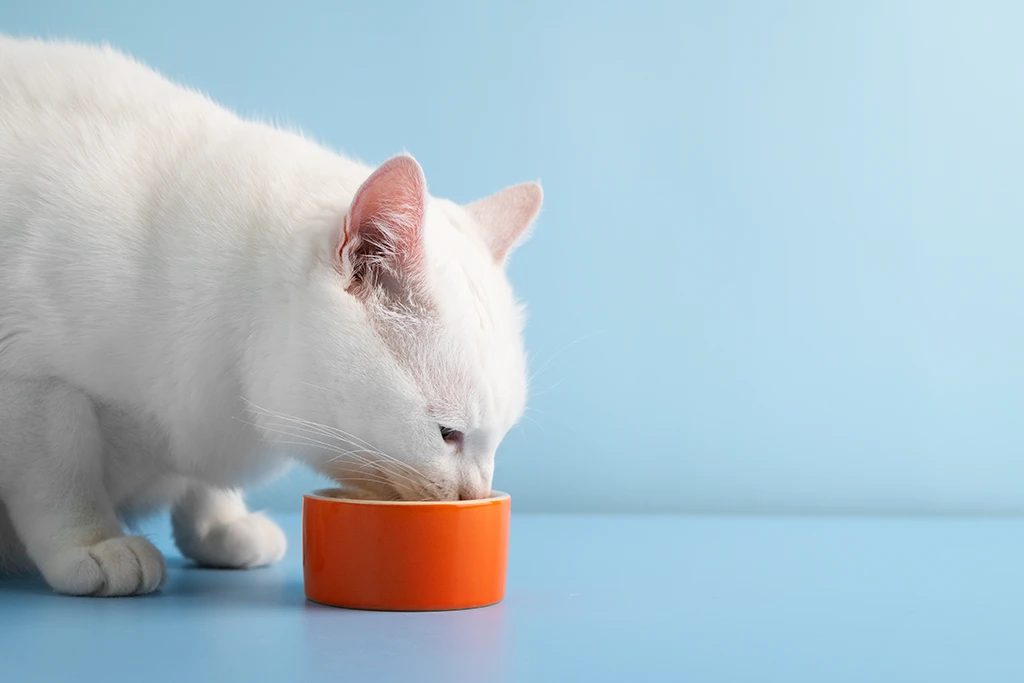

Time to talk about something that some cat parents have not considered their cat’s wellness: CBD treats. These treats, made specifically for cats, have been gaining attention as a natural way to support a feline’s overall well-being. Whether a cat is a curious adventurer or a devoted lap companion, CBD treats potentially help manage anxiety, support joint health, and promote a calm, balanced mood.
This article discusses how CBD treats work, their potential benefits, and some tips for finding the right option for a cat’s unique needs. Think of this as a practical guide to enhancing a pet’s health and comfort safely and gently.
Table of Contents
ToggleCBD, short for cannabidiol, is a compound from the hemp plant known for its calming and balancing effects. Unlike THC (the stuff that causes feel “high”), CBD does not turn a cat into a giggling mess. Instead, it interacts with a cat’s endocannabinoid system, a network of receptors that help regulate mood, sleep, appetite, and pain. Imagine it as a gentle nudge that helps a cat feel balanced, relaxed, and ready to face the world.
When CBD is introduced into the body, it doesn’t have a psychoactive effect – meaning no kitty “high.” Instead, it works with the cat’s endocannabinoid system, which is all about balance. It’s like giving a cat’s body a friendly little reminder to keep calm, comfortable, and well-adjusted, all without any weird side effects.

Many cat owners are excited about the potential benefits of CBD treats and oils for their pets. As interest in natural remedies grows, the potential advantages of CBD for felines are capturing the attention of pet owners looking to enhance their cats’ well-being.
Cats, like humans, become nervous or frightened as a result of changes in their environment, loud noises, trips to the vet, or the introduction of additional pets into the household. Cats are especially sensitive to these stressors which often show up as pacing, hiding, or decreased appetite. By gently relaxing a cat’s nervous system, CBD cat treats enable them to feel less anxious and more secure. Studies suggest that CBD relieves stress and anxiety primarily through its effects on the endocannabinoid system, serotonin receptors, and hippocampal neurogenesis (Schier, A., et al., 2012; Crippa, J., et al., 2011; Austrich-Olivares, A., et al., 2022; Skelley, J., et al., 2019). Whether dealing with an anxious cat or wanting to help them cope with occasional stressors, CBD treats offer a natural, supportive option.
For senior cats or cats experiencing pain from conditions like arthritis, CBD treats make a significant difference. A study in the International Journal of Molecular Sciences showed that “CBD shows analgesic and anti-inflammatory effects in various models, with potential clinical applications in treating neuropathic pain, inflammatory pain, and osteoarthritis,” (Mlost, J., Bryk, M., & Starowicz, K., 2020). With natural anti-inflammatory properties, CBD reduces joint inflammation and discomfort, improving mobility and quality of life. Joint pain and stiffness are common among older cats, and finding a solution that relieves pain without the side effects of traditional medications is a priority for many pet parents. By integrating CBD treats into their diet, cat parents notice improved ease of movement and more activity, which is essential for keeping their muscles and joints healthy. The gradual relief CBD provides gives aging cats the support they need to stay comfortable and mobile as they age gracefully.
Digestive issues are tough on cats, whether due to sensitive stomachs, dietary changes, or illness. CBD has been noted for its potential to ease digestive discomfort, making it a helpful option for cats with tummy troubles or issues like inflammatory bowel disease (IBD). A study showed that “Cannabidiol (CBD) shows promise as a promising drug for inflammatory bowel diseases (IBD) therapy without psychotropic effects, making it a potential candidate for developing a new class of anti-IBD drugs,” (Esposito, G., et al, 2013). CBD treats also help with appetite, stimulating interest in food for picky eaters or cats that have lost their appetite due to stress or health issues. In this way, CBD supports a healthier gut and more balanced digestion, which is vital for nutrient absorption and energy. For cats struggling with sensitive stomachs, adding CBD treats leads to a calmer digestive system and a happier mealtime experience.
Research into CBD’s effects on seizure management is still ongoing, but early findings suggest CBD helps reduce the frequency or severity of seizures in cats with epilepsy. An animal trial showed that “CBD’s anticonvulsive effects are dependent on TRPV1, but other targets may also play a role in its effectiveness in treating epilepsy,” (Gray, R., et al., 2020). While more studies are needed to understand exactly how it works, CBD’s interaction with the brain’s neurotransmitters has stabilizing effects, helping some cats manage seizure activity more effectively. If a cat has been diagnosed with epilepsy or a similar neurological condition, CBD treatment is an option to discuss with the cat’s veterinarian as part of a broader treatment plan. While it’s essential to work closely with a vet for cases like these, CBD offers a valuable support tool, adding another layer of care for cats with neurological issues.
As cats age, their needs change, and they face various health challenges, from decreased mobility to cognitive decline. CBD treats offer gentle support to make their senior years more comfortable. By promoting joint flexibility, supporting healthy brain function, and even stimulating appetite, CBD helps address some of the most common age-related issues in cats. For instance, CBD’s calming effects help senior cats stay relaxed and oriented, while its anti-inflammatory properties help with stiffness and pain, supporting a better range of movement. For cats entering their golden years, CBD treats are a valuable addition to their wellness routine, helping them feel comfortable, active, and engaged with their surroundings.

With so many CBD cat treats out there, it feels like a catnip jungle. Paws and Claws CBD cat biscuits are the easiest choice. But why? Here’s a quick checklist for choosing the best treats for a feline friend:
Look for treats made with natural ingredients – avoid artificial flavors, preservatives, or fillers. Premium treats contain ingredients like full-spectrum hemp oil, coconut oil, and even flavor options like chicken flavor or wild Alaskan salmon oil.
Full-spectrum CBD offers a complete profile of cannabinoids, as trace amounts of THC and other compounds together create an entourage effect. The best bet? Look for brands with clear labeling like full-spectrum hemp oil or pure CBD to make sure pet parents are getting exactly what’s right for a cat.
Just like with human supplements, CBD dosage matters. As a rule of thumb, start with 0.20 mg per pound of body weight. Products like CBDistillery CBD Pet Oil and NuLeaf Naturals Pet CBD make it easy to measure out the right amount.
Trustworthy brands offer third-party testing to verify their products’ purity, potency, and absence of THC. Look for a Certificate of Analysis (COA) that confirms the product’s CBD content and ensures it’s free of harmful contaminants.
Cats are picky – an understatement of the century, right? Whether a cat prefers crunchy treats, soft chews, or a mix-in CBD oil for their food, finding the right form is key to getting them to consume it. Options like Paw CBD Soft Chews or Holistapet CBD Cat Treats often come in salmon or chicken flavors that cats find irresistible.
New things make cats suspicious – CBD treats included. So start slow, with a low dose, and build up as needed. Here’s how to keep things chill when adding CBD treats for cats to their routine:
Start Small: Begin with a minimal amount to gauge how a cat responds. A starting dose of around 0.20 mg of CBD per pound of body weight does the trick.
Observe the Cat’s Reaction: Watch for positive changes like increased calmness, ease of movement, and a relaxed demeanor. And, of course, be on the lookout for any adverse reactions.
Be Consistent: CBD takes time to build up in the body, so a regular schedule helps see the full benefits.
Mix it Up: Not all cats dive headfirst into a CBD treat. If a cat is skeptical, try mixing CBD oil for cats into their favorite wet food or sprinkle a bit of the oil on a crunchy treat to mask the taste.
There are a lot of myths regarding CBD and most of them are not true. Continue reading to debunk some common misconceptions:
CBD Makes A Cat High
Nope! CBD isn’t psychoactive, so a cat does not experience any “high.” CBD products designed for pets are THC-free and made to support well-being.
All CBD Products are the Same
Not true. Quality, potency, and ingredients vary, so it’s crucial to choose reputable brands that offer transparency about their CBD oil products. A metal Analysis of 29 Over-the-Counter Commercial Veterinary Hemp Supplements concluded that “Low-THC veterinary hemp supplements have variable CBD concentrations and may contain heavy metals, highlighting the need for proper labeling and dosing instructions before use,” (Wakshlag, J., et al., 2020).
CBD is Just a Trend
While it seems trendy, CBD’s potential benefits are backed by studies on both humans and animals, making it a growing part of holistic pet care.
If a cat parent is new to CBD, has any concerns, or is considering it for a specific health condition, it’s always a good idea to consult a veterinarian. Why?
Determining Dosage: Vets help calculate the right CBD oil dosage for a cat’s size and health status.
Potential Interactions: If a cat is on medication, a vet advises on how to safely incorporate CBD.
Monitoring Results: A professional guides pet parents on what changes to look for and how to adjust if needed.
Integrating CBD treats or cat CBD oil into a cat’s routine is just the thing to keep them feeling their best. From easing anxiety to supporting their joints and digestion, CBD provides natural relief for a range of common cat concerns. Whether a cat parent to a frisky kitten or a beloved senior, finding the right CBD product brings out the best in a furry friend.
So, when it comes to finding the best CBD cat treats, think of it as a journey to enhance a cat’s comfort, joy, and overall well-being. Give it a try and watch a cat thrive with positive changes.

Table of Contents
Toggle